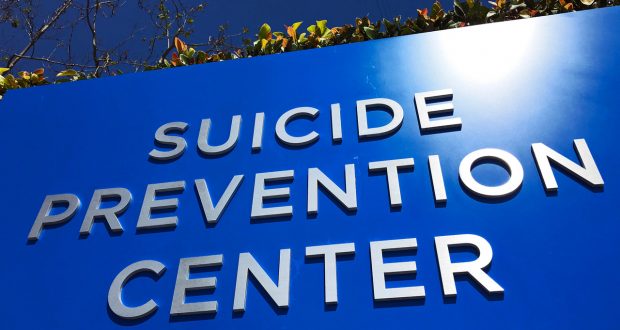By Aldon Thomas Stiles | California Black Media
The conclusion of Suicide Prevention Week on Sept.16, served as a reminder, according to wellness advocates, of the ongoing mental health crisis faced by Black Californians.
Between 2010 and 2019, Black Californians experienced a 31.1% increase in suicide deaths, according to the California Mental Health Services Oversight and Accountability Commission.
The Center for Disease Control and Prevention (CDC) reported that between 2019 and 2020, non-Hispanic White people experienced a decrease in suicide rates by 4.5% while the rate for non-Hispanic Black people increased by 4%.
For Black men, the numbers are more dire. Over the last two decades, the suicide rate for Black men has increased by nearly 60%, according to the American Academy of Child and Adolescent Psychiatry.
Many of these suicides occur among people aged 10 to 24, prompting schools, colleges and universities to develop programs to reach out to young Black Californians dealing with mental health challenges.
The Claremont Colleges (TCC), a consortium of five private liberal arts colleges and two graduate schools located in Southern California, have implemented programs of their own.
“Across our campuses, we are continuously working to reduce or remove perceived barriers that may prevent people of color from getting services at a counseling center,” said TCC’s Director of the Monsour Counseling and Psychological Services Center (MCAPS), Dr. Gary DeGroot.
DeGroot highlighted several internal obstacles, including a mistrust of treatment and therapy, a lack of confidence in the mental healthcare system’s ability to provide culturally competent care, and fear of stigma.
Dr. Adrienne Hilliard, Senior Staff Psychologist at the Claremont Colleges, spoke about the stigma connected to treatment for mental health issues.
“I think as suicide and mental health stigma decreases, Black men are now more open to identify and report that they are in crisis and instead of silently suffering are now encouraged and willing to seek help,” said Hilliard.
She pointed to some external obstacles to seeking mental health treatment.
“Several institutional factors can contribute to the increase suicide rates for Black men: economic oppression, increased educational disparities, racism and racial trauma across all sectors, racial injustice witnessed with the recent increase in recorded murders of black men by police and others, stigma surrounding manhood and mental illness,” said Hilliard.
Black Californians had the largest increase in firearm suicide rates since the start of the COVID-19 pandemic, according to a study by Injury Epidemiology.
However, TCC has seen an increase in the number of students participating in their mental health programs.
“More resources, specifically for Black folks are becoming readily available,” said Hilliard. “So, statistically there may be greater representation.”
Hilliard pointed to programs like Therapy for Black Men, Black Emotional and Mental Health Collective (BEAM), Black Mental Health Alliance, and The Boris Lawrence Henson Foundation.
DeGroot, who also works closely with the Office of Black Student Affairs (OBSA), stated that students respond positively to having access to Black therapists, connecting with Black organizations and attending Black student events.
Hilliard spoke on the importance of a community-based approach to mental health care for Black students on their campuses.
“Although each campus has individual resources and services, we encourage a more community-oriented mindset when it comes to our students of color,” said Hilliard. “We understand that community is extremely important for Black students, so we maintain connections with faculty and staff across departments, such as counseling, student health, housing, etc., to ensure our students are supported on every front.
Last Friday, Gov. Gavin Newsom’s office released a statement announcing that the state, through the the California Department of Health, is investing $16.3 million in “Youth Suicide Prevention efforts” through grants dedicated to tribal entities and community-based organizations.
“Suicide ideation amongst youth has increased nationwide, especially among girls, LGBTQ+ youth, and youth of color,” said First Partner Jennifer Siebel Newsom. “Knowing this, California’s new investments in youth suicide prevention resources are absolutely critical as we work to destigmatize mental health and improve access to mental health support for young Californians and their families.”
 Westside Story Newspaper – Online The News of The Empire – Sharing the Quest for Excellence
Westside Story Newspaper – Online The News of The Empire – Sharing the Quest for Excellence





